In its traditional form, Bildung has not been able to prevent wicked problems such as the climate crisis or the crisis of democracy. It has been burdened by an excessively strong association with nationalism, individualism and human-centredness. Thus, diminishing this association and re-evaluating the conception of Bildung is desirable. An update is required so that Bildung could more effectively contribute to the creation of a sustainable society and holistic welfare.
However, it is vital to emphasise that there is no need to redefine the entire concept of Bildung. In its traditional sense, Bildung plays an essential role in promoting critical thinking and human growth, for example. There is no great need to cast these values aside, yet it would be beneficial to release Bildung from its past and current confines, to elaborate and extend its field of application and, in particular, to develop Bildung to meet the challenges posed by the modern world.
The promotion of Bildung has traditionally been a central part of the Finnish and Nordic education systems, but now it is time to update the ways and contents of this advocacy. This will enable Finland and other Nordic countries to stay as pioneers of Bildung and to act as an international example.
[1] Bildung is a German term that does not have an exact English counterpart. It is a complex concept that refers to knowledge acquired through education, transformative civic education, mental development and open-mindedness towards new information. The concept encompasses aspects of such English terms as self-cultivation, scholarship, sophistication, civilisation, education, culture, creation and literacy.
The secret behind Nordic success
Bildung does not consist of only manners, education or knowledge of art and science. It is not just an academic way of life. Furthermore, Bildung should not only define individuals – “personal Bildung” is meaningless, unless it benefits the people around us (Niemelä 2011). Bildung is much more than any of the aforementioned aspects alone.
According to a newer, more comprehensive conception, Bildung lays the foundation for human development, welfare and adaptability in a changing world. The concept’s roots can be traced back to the Antiquity and, for example, the Greek term paideia. The German term Bildung emerged in the 18th century, and it was originally used for referring to a certain type of humanisation as well as the development of intellectual capabilities and moral virtues. (Kivistö and Pihlström 2018.)
In Germany, Bildung remained a philosophical concept, but in the Nordic countries, the idea of Bildung was eagerly put into practice. In the Nordic countries, Bildung has had a remarkable effect on the popular education work that began in the 19th century. In addition, it was a major factor in the creation of the Nordic social model (Andersen and Björkman 2017; Ojanen 2016). The earliest known printed appearance of the word sivistys – Bildung’s counterpart in the Finnish language – was in the newspaper Turun Wiikko-Sanomat in the 1820s.
In their book, The Nordic Secret, Lene Andersen and Tomas Björkman (2017), a Dane and a Swede, explain how folk-Bildung, that is, liberal education, is the “secret” behind the Nordic countries’ economic and social success story. Table 1 presents an adapted and simplified summary of the stages of Nordic Bildung according to their more detailed descriptions in The Nordic Secret. The final, third stage in the table represents the stage the authors wish society to enter now.
Table 1. The three stages of folk-Bildung in the Nordic countries
| Stage 1 | Stage 2 | Stage 3 |
| As of the 1850s | As of the 1900s | As of now |
| The circle of belonging expands from town or village to nation | From a nation to becoming also part of the Western countries and more abstract imagined communities | From local communities, nation state and continent (Europe) towards higher objectives than just the group’s own interests (society as a whole, future generations?) |
| Awakening, socialisation and empowerment | Individualisation | Systemic perspective |
| Towards self-governing with a purpose | From self-governing to self-authoring | Towards self-transforming |
| Am I a good team player? | Can I initiate change in my life? | Do I contribute to other people’s growth? |
Stage 1 in the table above lasted longer in Finland than in the other Nordic countries. In Finland, the development of the nation state and the unification of people lasted long into the 20th century. For Finland, it took longer to reach Stage 2 as the country did not gain independence until 1917, its independence was followed by a civil war, and the Second World War’s toll on Finland was heavier than on the other Nordic countries. However, after the wars, Finland caught up with the other Nordic countries quickly.
The Finnish conception of Bildung has a strong foundation in the German Bildung tradition. However, basing our conception on this tradition is characterised by problems that limit our thinking. For example, this tradition highlights the significance of discipline and order as conditions of the sophistication process, through which people are expected to overcome their animalistic nature. This emphasises the distinction between nature and culture (including the economy). Thus, the traditional conception of Bildung is very human-centred, and it has neglected society’s impacts on the environment. (Heikkinen 2018.) This neglect of the non-human environment and nature has been criticised by, for example, critical post-humanists (Toikkanen 2019; Koskinen 2019).
As the objective of Bildung has been to reach the human condition in its traditional sense, Bildung has, for its part, led to a situation in which the human impact is so remarkable that it changes the earth’s surface, the atmosphere, the oceans and nutrient cycles in a significant manner (the Anthropocene). Unfortunately, this has caused our biosphere to approach a state which poses a threat to the living conditions of humans. (Heikkinen 2018; Lehtonen, Salonen and Cantell 2019.) This is a momentous argument that calls for updating our conception of Bildung – in order to secure our living conditions, we must re-evaluate Bildung’s tight bond to human-centredness. Therefore, the well-being of the non-human environment should be added to Stage 3 in Table 1 as a parallel to the welfare of people. Furthermore, reducing the excessive individualism of the Bildung conception could facilitate the mitigation of various welfare issues.
While in the early 20th century Bildung had a nationalistic objective to build the nation state and lay the foundation of our welfare state, it could now play a major role in a novel societal transformation – the change required for solving the wicked problems of our time. Of course, Bildung alone cannot provide the solution, but it is highly unlikely that a sufficient transformation can be achieved without a reformed conception of Bildung.
Throughout its history, Bildung has served as a tool for various purposes. It has been used for creating different kinds of narratives, or narratives have been drawn from it. Now it is relevant to ask what new aspects should be embedded in Bildung in modern times. What is Bildung’s new narrative?
According to Olli-Pekka Heinonen, Director General at the Finnish National Agency for Education, Finland’s Bildung narrative is strongly linked to the narrative of Finnishness. However, when he was interviewed for the book Hengenpimeyttä vastaan (Blåfield 2019), he asked whether this is still necessary.
“In the context of essential questions about the survival of the earth or the entire human race, identity is nowadays considered to have a global foundation more often than before. This applies to younger generations in particular.
As [Finland’s national philosopher Johan Vilhelm] Snellman [1806–1881] once said, the idea that Bildung is something timeless is utterly unrealistic. Instead, Bildung develops and changes over time, and it has to be redefined in each era. Is our thinking marked by too many defence systems in modern times, or are we capable of redefining Bildung in a novel manner?”
This quotation emphasises the fact that the conception of Bildung is not static, and it cannot be clearly defined. Instead, Bildung should be recognised as a dynamic, or active and living, concept.
Bildung and competence are not the same
In Finland, Bildung has not aroused a lot of discussion in the past few decades, although in recent years, the word has started to appear increasingly frequently. It is true that Bildung is often referred to when discussing lifelong learning. However, there is a risk that it is used merely as a fine word for fine occasions, and that the somewhat individualistic idea of lifelong or continuous learning is nothing but a response to the business sector’s complaints about the shortage of skilled workers. Or perhaps Bildung is used as a new name for the continuing education of employees. In that case, the Bildung-related idea of criticality that improves society’s adaptability and develops our ways of thinking is easily forgotten.
Bildung and competence are not synonyms, even though the terms are linked to each other and overlap in certain respects. In this so-called post-truth era, media literacy and the ability to learn, for example, are vital, but they alone do not comprise an actual force of change. In any case, updating the conception of Bildung could provide new dimensions for lifelong learning as well.
Educational work could entail much more than just traditional training and competence projects, which are already abundant at every level of education in Finland. It is typical that Bildung plays only a minor role in such projects. One of the reasons for this is that competence and Bildung are concepts whose content and starting points aim at partially different things. The concepts and the discussion around them have been analysed by researchers Tuukka Tomperi and Jaakko Belt. According to them, the discussion on competence highlights the transformation of work, the business sector’s requirements, working-life skills and the technological transformation. However, Bildung is a more extensive concept than competence, and it also comprises open reflection as well as the critical examination and re-evaluation of various basic assumptions. (Tomperi and Belt 2019.)
Bildung needs more recognition, and the visibility of reformed Bildung as a cornerstone of meaningful life should be increased. Then Bildung could act as a counterforce to populist trends that supress scientific and academic expertise or to the feeling of helplessness that many people experience in the face of wicked problems. In order to reach these objectives, it is important to arouse an open, in-depth discussion on Bildung and its possible new goals. In addition, our conception of a civilised state, or a nation based on Bildung, could be refreshed.
Contemporary Bildung-based education can no longer lean on traditional top-down instruction. Instead, it requires a purpose that reflects the modern world. It might be useful to elaborate this idea by referring to the ideas of Väinö Voionmaa (1869-1947), a recognised advocate of Finnish working-class education. Voionmaa’s ideas on Bildung were not based on sophisticating the poorer social classes. Rather, his actual objective was to use Bildung as a means to end poverty. (Blåfield 2019.) Correspondingly, it could be said that the core of modern Bildung-based education is not the sophistication of people, but the true ambition is to use reformed Bildung to provide people with the capacity to respond to the great challenges ahead.
Change of paradigms as the basis of societal change
To avoid the catastrophic climate crisis, for example, we require a profound societal change – a transformation that cannot be achieved without changing our ways of thinking. It is at least as important as changing certain practices, operating models or funding principles, or perhaps even more important and difficult. Otherwise we will not be flexible even in the face of inevitable, negative scenarios. Changes in paradigms and educational structures are of particular importance because they have extensive and profound impacts (see Figure 1).
Figure 1. The spheres of societal transformation (Laininen 2018; O’Brien and Sygna 2013; and Sharma 2007)
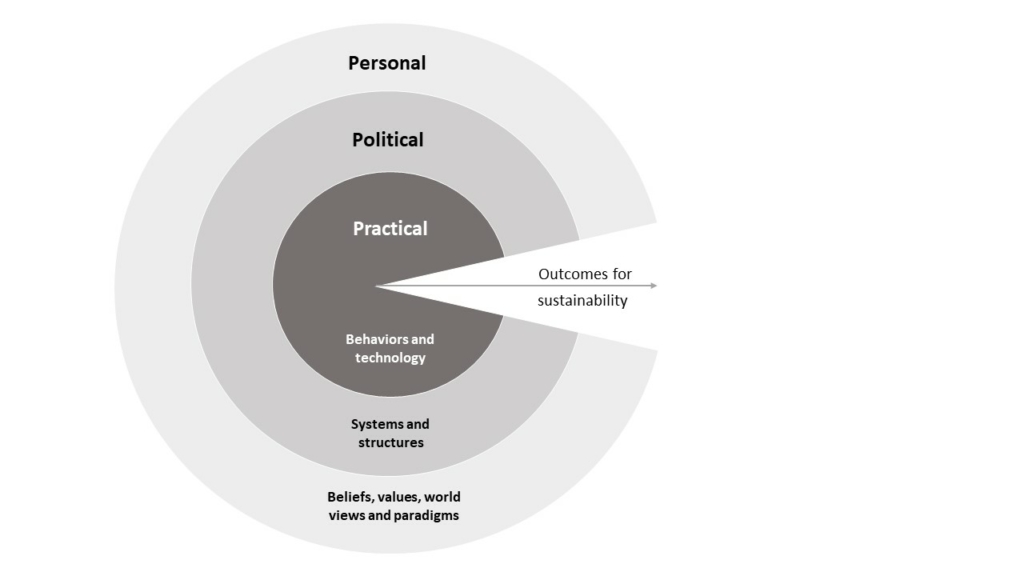
Nowadays there are numerous organisations that aim to mitigate climate change – including Sitra and its Carbon-neutral circular economy theme – but in general, practical work has been carried out on the two inner spheres of the above figure. These spheres include the behavioural level (such as Sitra’s Resource-wise citizen focus area) and the level of systems and structures (such as Sitra’s Circular economy and Climate solutions focus areas). Less attention has been paid to the figure’s outermost sphere, the development of paradigms.
Mindsets, paradigms and conceptual content can be addressed in collaboration with scientists, journalists, artists, teachers and education planners, among others. They can set the change of paradigms in motion.
If we truly wish to achieve a sustainable society capable of overcoming wicked problems, our cultural habits, norms and values must change. Sociologist Turo-Kimmo Lehtonen (2019) discusses one wicked problem, climate change, in a manner that reveals how remarkable the transformation is that we are facing, and why the nationalistic approach is no longer sufficient:
“If we truly invest in mitigating the effects of climate change, our efforts will not be visible only in the UN’s briefings or the IPCC’s reports. Instead, they will reflect on the everyday operation of day-care centres, the food served in the army, the profitability of road transportation, the clothing industry’s earnings potential – everything. Climate change is a wicked problem, and through various stages, our responses to it impact everything from the resources of nursing care to the types and locations of the houses we build in Finland. We can already see it on families’ dinner tables. It should be visible in our way of discussing social justice.
[…]
Unfortunately, it is of no use to hope that the problems caused by climate change could be solved somewhere else than here and by someone else than us.
Climate change, in particular, is part of the reason why “here” no longer means just a family’s dinner table, the closest supermarket or the local municipality’s land-use plans. In this time of global economy, the choices we Finns make “here” have global impacts. Therefore, when solving the problems of the human-caused climate change among ourselves, we cannot consider “us” to mean the people within Finland’s national borders.”
Even though climate change may be the best example of the border-crossing nature of wicked problems, various wicked problems relate to phenomena that are not confined to within the borders of a single country. The crisis of democracy is one such example.
Bildung and wicked problems
Wicked problems have various links to the predominant megatrends that Sitra has strongly highlighted in recent years. Sitra’s megatrends are compiled in Figure 2 below. The three megatrends outside the circle are well-known, and there is a broad consensus that they exist. The three megatrends inside the circle are slightly less known but nonetheless very significant. They can be called loosened link megatrends.
Figure 2. Sitra’s megatrends
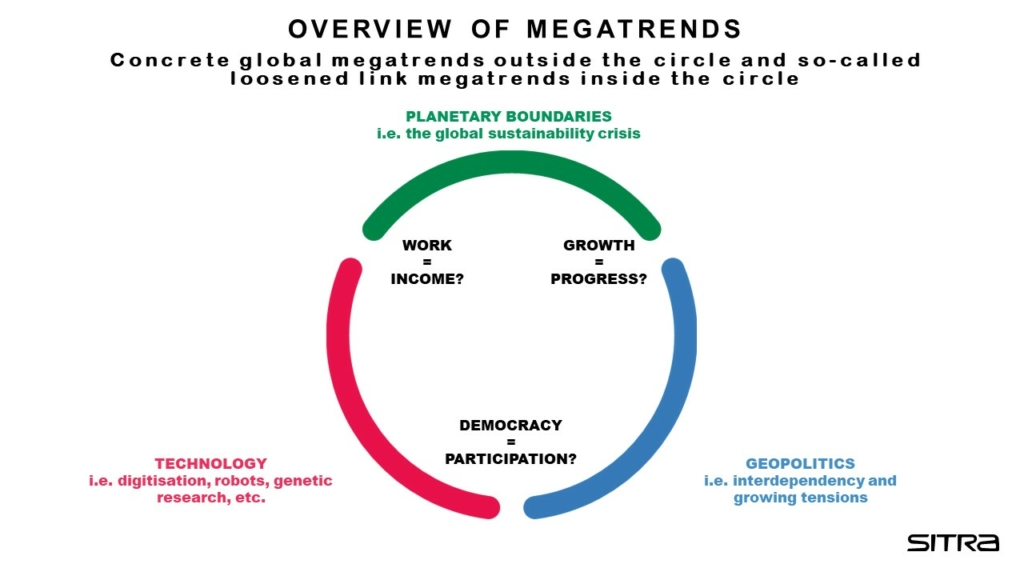
From the three megatrends outside the circle, the global sustainability crisis is probably the most extensive wicked problem. If the limits of the earth’s carrying capacity are exceeded for too long, climate change cannot be stopped, and human societies will face a dark future.
From the megatrends inside the circle, the separation of economic growth and progress relates to the global sustainability crisis. The negative environmental impacts of economic growth have caused people to question the idea that economic growth is only positive. In industrialised countries, material well-being has increased to this date, but now material growth is no longer considered progress because it has brought us to the brink of the global sustainability crisis. Furthermore, people do not feel that well-being has increased along with the growth of the economy. As progress and Bildung are close concepts, Bildung relates to the wicked problem of the sustainability crisis as well.
The crisis of democracy, that is, the separation of democracy and the sense of inclusion, is another wicked problem. Many have been disappointed by the fact that various societies have not distributed the fruit borne by economic growth sufficiently equally. This disappointment is at least part of the reason for the emergence of populist protest movements. This development has the elements of a crisis. A decrease in respect for research and scientific expertise – a form of contempt of Bildung – has been observed among supporters of populist movements. This, in turn, is an obstacle to solving various complex problems. If the applied solutions are not based on researched information, they will most likely fail to provide the desired results.
The crisis of democracy is also linked to the tension between globalisation and nationalism. The economy has become globalised, but, at the same time, nationalism has not disappeared from the political field. In this respect, the crisis of democracy as a megatrend is closely linked to the megatrend of interdependency and growing tensions because nationalistic thinking and global interdependency conflict in a troublesome way.
The fact that Finland’s Bildung-based education has had a strong foundation in nationalism almost until today does not make the situation any easier. Furthermore, many European countries used the spread of education as a rationale for colonialism and colonial policies. Instead of having to ignore Bildung’s past relations to nationalism, we could reform Bildung and apply it as a tool that would facilitate living in a globally interdependent world.
Unfortunately, negative nationalism has become stronger in various countries recently. Displacement caused by global developments has shed light on the darker aspects of nationalism, such as xenophobia. The problem is aggravated by the fact that the idea of internationalism, which was popular during the early stages of the labour movement, has grown weaker during the past hundred years. The labour movement, too, has criticised this development. According to philosopher Tuomas Nevanlinna, populist movements are shadows of the labour movement. They originate from the labour movement’s neglect of its Bildung project. This has resulted in too much room for nationalism. (Blåfield 2019.)
The crisis of democracy also comprises technological aspects. It turned out that the development of the internet was not just a positive agent of change. It also enabled the spread of false news – much of which is produced by troll factories – and manipulation through social media, accelerating the rise of populism.
The third wicked problem, which could be mitigated by reforming Bildung and increasing respect towards it, relates to the overall picture painted by the megatrends discussed above. It is a picture that demonstrates the increase in society’s complexity. This exponential increase in complexity causes anxiety, stress and other mental health problems in people and weakens their capacity to make decisions. It seems that the consumer society’s promise of well-being will not be realised because large parts of the populations of high-income countries suffer from the above-mentioned problems (Hämäläinen 2014). Thus, the third wicked problem could be called a life-management crisis caused by an increase in complexity. It exposes people to extremist and populist movements that seem to offer simple solutions to complex problems.
Bildung provides an essential basis for mental coherence (the clarity, controllability and meaningfulness of life) and well-being. Thus, it is an effective antidote to increasing complexity. Many people suffer from a sense of lack of control and feelings of meaninglessness that originate from things such as the swift structural changes in society, the increased role of individualism and the disproportionately high importance afforded to material values.
The three crises discussed above are also strongly interrelated. For example, the crisis of democracy can be seen as a subtype of the life-management crisis. On the other hand, when solving the environmental crisis, for example, attention must be paid to democracy. Otherwise the proposed solutions will not be supported by a sufficient number of people. In any case, the values and the conception of Bildung underlying these crises need to be changed so that the crises can be solved. The fundamental assumptions of our conception of Bildung are linked to our way of life and value judgements.
Towards eco-social Bildung and planetary responsibility?
The first steps towards a reformed conception of Bildung have already been taken. However, we still have a long way to go before the novel conception of Bildung becomes mainstream.
The concept of “eco-social Bildung” is already mentioned in the Finnish national core curricula for early childhood education and care, basic education and upper secondary schools. In the curricula, the concept refers to a learning goal according to which people should understand that ecological sustainability is a prerequisite for social sustainability and the realisation of human rights.
Eco-social Bildung is a concept linked to the work of educationalist Arto O. Salonen in particular. According to Salonen, an eco-socially sophisticated person is capable of identifying interdependencies between ecological, social and economic realities. Salonen and Marjatta Bardy also believe that eco-social Bildung secures economic operating conditions (Salonen and Bardy 2015).
In their acclaimed article “Vauraus ja sivistys yltäkylläisyyden ajan jälkeen” (Prosperity and Bildung after the era of abundance) (Salonen and Joutsenvirta 2018), which discusses Bildung and prosperity, Salonen and Maria Joutsenvirta use the phrase “Bildung conception based on post-material values” instead of eco-social Bildung. The following is a quote from Salonen and Joutsenvirta’s article: “A conception of Bildung that provides solutions to wicked problems from versatile perspectives requires the courage to aim for new achievements and to surpass the existing ideas.” This relates to extending the sphere of observing the realisation of fairness. In addition to people, the sphere could include animals and nature; in addition to one’s own nationality, it could include all nationalities; and in addition to living people, it could include future generations. According to Salonen and Joutsenvirta, the novel understanding of Bildung is above the instrumentalised conception of Bildung, that is, the conception based on social prosperity or eligibility for work. Salonen and Joutsenvirta state that people, surrounding society and future generations lose some essential aspects of progress unless an extended conception of Bildung can be achieved.
Educationalist Veli-Matti Värri (2018) has also discussed ecological Bildung. Like the concept of eco-social Bildung, Värri’s idea of ecological Bildung guides the critical evaluation of our fundamental assumptions: according to Värri, it is necessary to redefine our fundamental conception of the relationship between people and non-human nature (Ekososiaalinen sivistys kestävän tulevaisuuden rakentajana 2018/2019; Toikkanen 2019).
Eco-social, ecological or post-material values-based Bildung (see the box below) seem like potent antidotes against both the global sustainability crisis and the crisis of democracy, as they highlight ecological sustainability, the meaningfulness of life and the need to expand the spheres of fairness. Noteworthy aspects include future generations, other species and global interdependency (Kyllönen 2016). However, it should be borne in mind that the possible novel conception of Bildung presented in the box below is not yet a permanent state. Further discussion and examination are still required.
Order of importance:1. Ecological dimension, or safeguarding the preconditions for life.
2. Social dimension, or human rights and the comparability of people and other forms of life.
3. Economic dimension, or fostering the stability of the economy, but only as an indirectly valuable thing.Systemic comprehension, or perceiving the world as a socio-ecological system which depends on a joint examination of ecological, social and economic matters.Responsibility, or a responsible relationship with the world that encompasses all people, living and non-living nature and future generations.Moderateness, or an understanding of what things need to be increased or decreased to lead a good life.Interrelation between people and other living organisms. This enables the pursuit of the whole human condition.In addition, experientiality and meaningfulness are important.
|
PROPERTIES OF ECO-SOCIAL OR POST-MATERIAL VALUES-BASED CONCEPTIONS OF BILDUNG (adaptively based on publications by Arto O. Salonen, Marjatta Bardy, Maria Joutsenvirta and Erkka Laininen) Order of importance: 1. Ecological dimension, or safeguarding the preconditions for life. Systemic comprehension, or perceiving the world as a socio-ecological system which depends on a joint examination of ecological, social and economic matters. Responsibility, or a responsible relationship with the world that encompasses all people, living and non-living nature and future generations. Moderateness, or an understanding of what things need to be increased or decreased to lead a good life. Interrelation between people and other living organisms. This enables the pursuit of the whole human condition. In addition, experientiality and meaningfulness are important. |
The next stage of Bildung?
The book Vapaa sivistystyö – eilen, tänään, huomenna (Pätäri et al. 2019), published by the Finnish Adult Education Association, describes three future scenarios of liberal adult education. One of the scenarios is negative; it describes how educational work slowly comes to a stop. The second scenario is neutral; everything continues without any remarkable changes. The third scenario presents a positive vision.
In the positive scenario, the effectiveness of education increases and nation state- and human-centred Bildung is replaced by a planetary form of Bildung. Then, educational work is no longer seen only as the provision of learning services, the promotion of continuous learning or a national middle-classification project. Instead, it is considered as a planetary responsibility which means responsibility that takes account of the earth’s current state and “collective, wisdom-based responsibility towards other inhabitants of the earth”. (Teräsahde and Manninen 2019; Heikkinen 2019.)
The situation described in the third scenario is worth striving for. It cannot be reached automatically but requires effort and bold thinking.
REFERENCES
Andersen, L. and Björkman, T. (2017): The Nordic Secret. Fri Tanke.
Blåfield, V. (2019): Hengenpimeyttä vastaan. Puheenvuoroja sivistyksestä. Edita.
Ekososiaalinen sivistys kestävän tulevaisuuden rakentajana (2018/2019). OKKA Foundation (Foundation for Teaching, Education and Personal Development) online article.
Hakoniemi, E. (2018): Sivistys yhteiskunnallisena voimana ‒ työväen sivistystyön sivistys-käsite. In J. Tähtinen, J. Hilpelä and R. Ikonen (eds): Sivistys ja kasvatus eilen ja tänään. Finnish Society for the History of Education’s yearbook 2018.
Heikkinen, A. (2018): Ammattisivistyksen lupaus antroposeenin/kapitaloseenin aikakaudella. In J. Tähtinen, J. Hilpelä and R. Ikonen (eds): Sivistys ja kasvatus eilen ja tänään. Finnish Society for the History of Education’s yearbook 2018.
Heikkinen, A. (2019): Vapaan sivistystyön aatteet ja ideologiat. In J. Pätäri, S. Teräsahde, A. Harju, J. Manninen and A. Heikkinen (eds): Vapaa sivistystyö. Eilen, tänään ja huomenna. Finnish Adult Education Association.
Hämäläinen, T. J. (2014). In search of coherence: sketching a theory of sustainable well-being. In T. Hämäläinen, and J. Michaelson (eds), Well-being and Beyond. Sitra Publication series, 306. Edward Edgar Publishing Limited.
Kivistö, S. and Pihlström, S. (2018): Sivistyksen puolustus. Miksi akateemista elämää tarvitaan? Gaudeamus.
Koskinen, I. (2019): Elitistisen sivistyshumanismin puolustus. (Review of Kivistö, S. and Pihlström, S.: Sivistyksen puolustus: Miksi akateemista elämää tarvitaan? Gaudeamus, 2018.) Tiedepolitiikka 1/2019.
Kyllönen, S. (2016): Eettinen kartta Suomelle. Kestävyys moraalisena kysymyksenä keskinäisriippuvaisessa maailmassa. Sitra Studies 116. Sitra.
Laininen, E. (2018): Transformatiivinen oppiminen ekososiaalisen sivistymisen mahdollistajana. Ammattikasvatuksen aikakauskirja 5/2018.
Lehtisalo, L. (ed.) (1993): Sivistys 2017. Sitra publication 132. WSOY.
Lehtonen, A., Salonen, A. and Cantell, H. (2019): Climate Change Education: A New Approach for a World of Wicked Problems. In Cook, J. W. (ed.): Sustainability, Human Well-Being, and the Future of Education. Palgrave Macmillan.
Lehtonen, T.-K. (2019): Ilmastonmuutos ja kolme ajatusvirhettä. Alusta! (University of Tampere Faculty of Social Sciences’ online magazine) 11.03.2019.
Niemelä, S. (2011): Sivistyminen. Sivistystarve, -pedagogiikka ja -politiikka pohjoismaisessa kansansivistystraditiossa. Finnish Lifelong Learning Foundation and Snellman Institute.
O´Brien, K. and Sygna, L. (2013): Responding to climate change: The three spheres of transformation. Proceedings of Transformation in a Changing Climate, 19-21 June 2013, Oslo, Norway. University of Oslo.
Ojanen, E. (2016): Valkoliljojen maa ja aikakauden henki. In T. Jantunen and E. Ojanen: Mikä ihmeen sivistys? Critical Academy.
Pätäri, J., Teräsahde, S., Harju, A., Manninen, J. and Heikkinen, A. (eds) (2019): Vapaa sivistystyö. Eilen, tänään ja huomenna. Finnish Adult Education Association.
Salonen, A. O. and Bardy, M. (2015): Ekososiaalinen sivistys herättää luottamusta tulevaisuuteen. Aikuiskasvatus 1/2015.
Salonen, A. O. and Joutsenvirta, M. (2018): Vauraus ja sivistys yltäkylläisyyden ajan jälkeen. Aikuiskasvatus 2/2018.
Sharma, M. (2007): Personal to planetary transformation. Kosmos Journal.
Teräsahde, S. and Manninen, J. (2019): Visiot vapaan sivistystyön tulevaisuudesta. In J. Pätäri, S. Teräsahde, A. Harju, J. Manninen and A. Heikkinen (eds): Vapaa sivistystyö. Eilen, tänään ja huomenna. Finnish Adult Education Association.
Toikkanen, A. (2019): Inhimillisen ja ei-inhimillisen suhde luokanopettajakoulutuksen opetussuunnitelmassa. Master’s thesis in pedagogy, Department of Teacher Education, University of Jyväskylä.
Tomperi, T. and Belt, J. (2019): Johdatukseksi sivistyksen ajattelemiseen. Niin & näin 1/2019.
Värri, V.-M. (2018): Kasvatus ekokriisin aikakaudella. Vastapaino.

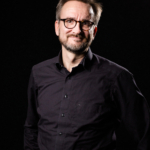
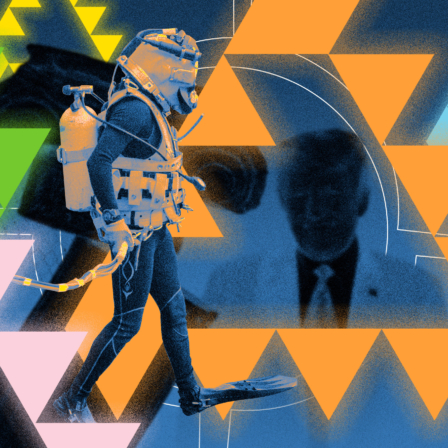
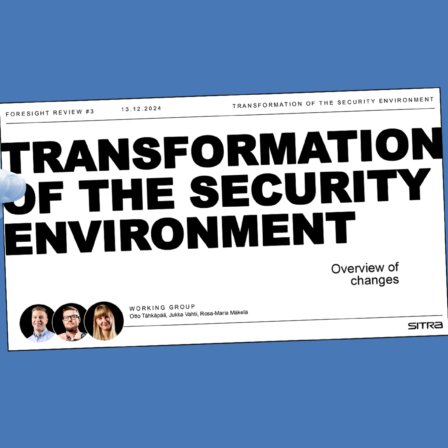
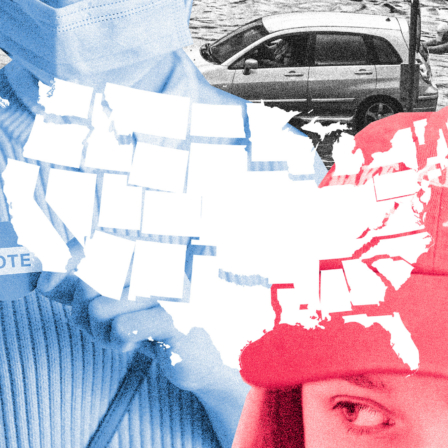


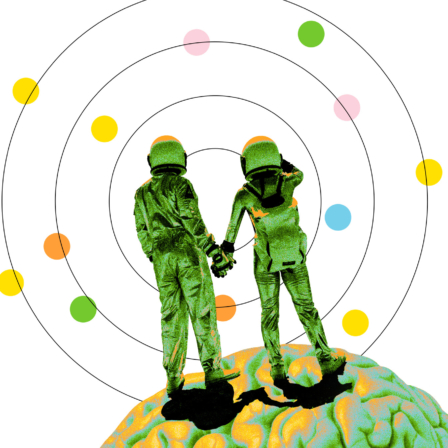





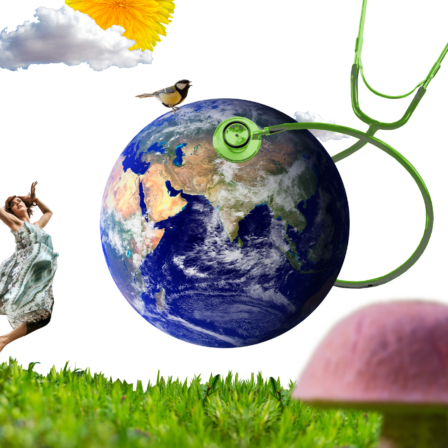
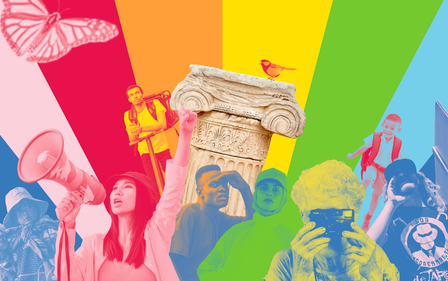
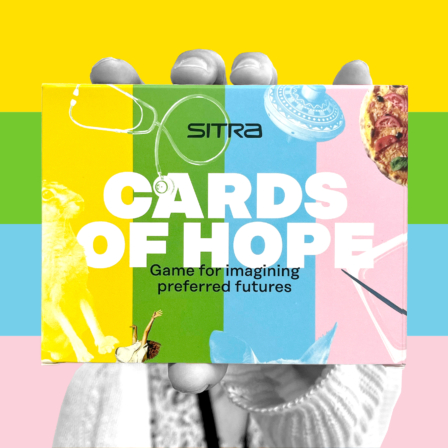
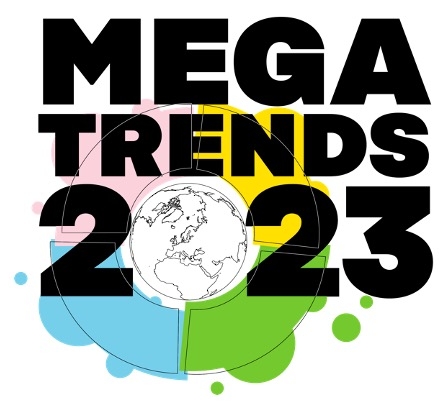
Recommended
Have some more.